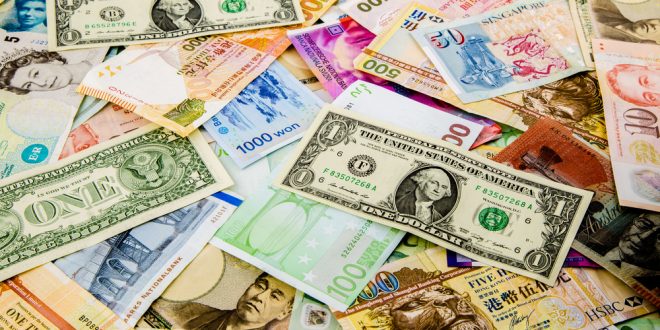The dollar fell on Friday as investors bet that US interest rates had peaked, while the yen rose after Japan’s core consumer prices grew, boosting expectations that the Bank of Japan may soon roll back monetary stimulus.
With US markets closed on Thursday due to the Thanksgiving holiday and a shorter trading session today on the occasion of Black Friday, currencies are trading in a limited range as liquidity is expected to remain weak.
The dollar index, which measures the performance of the US currency compared to six currencies, fell 0.077 percent to 103.69 points, remaining close to the lowest level in two and a half months at 103.17, which it touched earlier in the week.
During the month, the index fell 2.8 percent and is on track to record its weakest monthly performance in a year amid growing expectations that the Federal Reserve has finished raising interest rates and may begin lowering them next year.
Markets reduced their expectations that the Federal Reserve would cut interest rates in 2024. According to the CME Group’s FeedWatch service, there is a 25 percent chance that the US central bank will cut interest rates at its monetary policy meeting in March 2024, compared to a 33 percent chance. last week.
The Japanese yen stabilized at 149.57 against the dollar after rising following data showing Japan’s core consumer price growth increased slightly in October after declining the previous month.
This reinforced investors’ expectations that inflation may prompt the Bank of Japan to pull back on monetary stimulus soon.
The Japanese currency slowly moved away from its lowest level in 33 years at 151.92 against the dollar, which it touched at the beginning of last week, and rose 1.5 percent during the month.
The euro stabilized at $1.0909 after data confirmed preliminary estimates published in late October and showed that the German economy contracted slightly in the third quarter compared to the previous three months.
The pound sterling rose for the second day in a row, 0.2 percent to $1.2559, after data on Thursday showed that British companies returned to growth in November, raising hopes that Britain would avoid a recession.
 Noor Trends News, Technical Analysis, Educational Tools and Recommendations
Noor Trends News, Technical Analysis, Educational Tools and Recommendations





